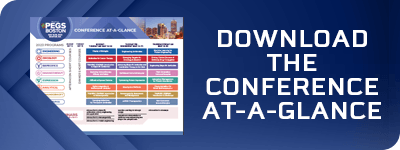短期課程
我們的短期課程旨在具有教育性、互動性,並提供有關特定領域的深入資訊。 此外與會者更可以和演講嘉賓師進行一對一的對話,以闡明會議中演講未涵蓋的技術方面的內容。
短期課程將僅以面對面型式進行。
2024年5月12日(日) 2:00 - 5:00 pm
SC2: How to Use and Improve Microbial Expression Systems for Recombinant Protein Production
Choosing and Customizing Microbial Expression Systems for RPP
Jan-Willem de Gier, PhD, Professor, Biochemistry and Biophysics, Stockholm University
Microbial Expression Systems for RPP: The Anatomy Lesson
Alexandros Karyolaimos, PhD, Researcher, Department of Biochemistry & Biophysics, Stockholm University
Learning outcomes:
- The course will provide an overview of different microbial expression systems, how they work and are best used.
- This knowledge is critical to identify a suitable expression system for a certain application.
- After the course attendees will be able to make an informed decision when selecting a microbial-based expression system for a certain application.
- This course aims to assist anyone producing recombinant proteins in microbial systems from scientists that are at the bench working in discovery or early development and need to produce a variety of different proteins such drug targets and reagents to bioprocess engineers.
Agenda for the Short Course:
2:00 pm Welcome & Introduction
2:15 pm Microbial Expression Systems for RPP: The Anatomy Lesson Taught by Alexandros Karyolaimos
3:30 pm Q&A with attendees
3:15 pm Refreshment Break
3:30 pm Choosing and Customizing Microbial Expression Systems for RPP Taught by Jan-Willem de Gier
4:45 pm Q&A with attendees
5:00 pm Close of Short Course
INSTRUCTOR BIOGRAPHIES:
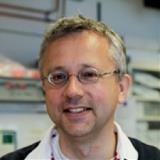 Jan-Willem de Gier, PhD, Professor, Biochemistry and Biophysics, Stockholm University
Jan-Willem de Gier, PhD, Professor, Biochemistry and Biophysics, Stockholm University
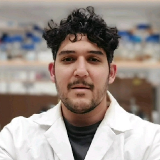 Alexandros Karyolaimos, PhD, Researcher, Department of Biochemistry & Biophysics, Stockholm University
Alexandros Karyolaimos, PhD, Researcher, Department of Biochemistry & Biophysics, Stockholm University
SC3: In silico and Machine Learning Tools for Antibody Design and Developability Predictions
Instructors:
Vinodh B. Kurella, PhD, Biotherapeutic Computational Modeler, Takeda Pharmaceuticals, Inc.
Tony Pham, Scientist, Biologics Engineering & Developability, AstraZeneca
Nele Quast, DPhil Candidate, Oxford Protein Informatics Group
Topics to be covered include:
- Overview of Sequence, Structure-guided, ML (machine learning) tools for developability and designs
- In-silico developability assessment and analyses of diverse sequences from diverse public sources (NGS, clinical)
- Summary of high throughput experimental developability assessment.
- In-silico structural feature generation
- Overview and demo of various ML tools from Oxford Protein Informatics Group (OPIG) and others such as Rosetta based Protein MPNN and RF (RosettaFold) Diffusion models.
- Antibody specific language models (Ablang - Olsen et al 2022, Ablang2 - Olsen et al 2024)
- Antibody (and nanobody) structure prediction (ABodyBuilder2) Abanades et al 2023)
- Therapeutic antibody profiling and developability evaluation (TAP - Raybould et al 2019, TAP2 - Raybould et al 2024)
- Antibody sequence optimisation with inverse folding (AntiFold - Hummer et al 2023)
INSTRUCTOR BIOGRAPHIES:
 Vinodh B. Kurella, PhD, Biotherapeutic Computational Modeler, Takeda Pharmaceuticals, Inc.
Vinodh B. Kurella, PhD, Biotherapeutic Computational Modeler, Takeda Pharmaceuticals, Inc.
 Tony Pham, Scientist, Biologics Engineering & Developability, AstraZeneca
Tony Pham, Scientist, Biologics Engineering & Developability, AstraZeneca
 Nele Quast, DPhil Candidate, Oxford Protein Informatics Group
Nele Quast, DPhil Candidate, Oxford Protein Informatics Group
SC4: Safety and Efficacy of Bispecifics and ADCs
Safety and Efficacy of Bispecifics and ADCs
Rakesh Dixit, PhD, President & CEO, Bionavigen
Bispecific immunotherapies and ADCs are the two most rapidly advancing cancer therapeutics in the war against cancer. However, efficacy and safety challenges limit their therapeutic effectiveness in resistant and refractory cancers. The short course will discuss:
- Bispecific and ADC landscape assessment and unmet medical needs
- Efficacy and safety challenges originating from poorly constructed ADCs
- Five rights of the targets, effector arms, and constructs for attaining the best therapeutic index for bispecifics and ADCs
- Minimizing toxicities of bispecifics and ADCs
- Translational aspects of bispecific and ADC development
INSTRUCTOR BIOGRAPHIES:
 Rakesh Dixit, PhD, President & CEO, Bionavigen
Rakesh Dixit, PhD, President & CEO, Bionavigen
SC5: Targeting Solid Tumors and Understanding the TME
Targeting Solid Tumors and Understanding the TME
Tony R. Arulanandam, DVM, PhD, Senior Vice President and Head R&D, Cytovia Therapeutics
- Understanding the Tumor Microenvironment (TME)
- TME's role in immuno-oncology
- Solid tumor biology
- Targeting solid tumors
- Latest approaches to solid tumors
INSTRUCTOR BIOGRAPHIES:
 Tony R. Arulanandam, DVM, PhD, Senior Vice President and Head R&D, Cytovia Therapeutics
Tony R. Arulanandam, DVM, PhD, Senior Vice President and Head R&D, Cytovia Therapeutics
2024年5月14日(二) 6:30 - 9:00 pm
SC6: Best Practices for Targeting GPCRs, Ion Channels, and Transporters with Monoclonal Antibodies
Best Practices for Targeting GPCRs, Ion Channels, and Transporters with Monoclonal Antibodies
Ross Chambers, PhD, Vice President, Antibody Discovery, Integral Molecular, Inc.
Topics to be Covered:
- Overview of different classes of membrane proteins, including structure, mechanism, and their role in disease
- Membrane protein biochemistry and antigen preparation strategies
- Use of mRNA and DNA for eliciting immune responses against membrane proteins
- Antibody discovery and methods to enable isolation of functional antibodies
- Review of mechanisms relevant to complex membrane proteins (GPCRs, ion channels, transporters), in vitro assays for measuring the detailed binding and function of antibodies
- Review of promising membrane protein targets and antibodies in development
INSTRUCTOR BIOGRAPHIES:
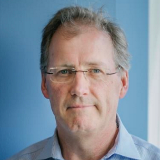 Ross Chambers, PhD, Vice President, Antibody Discovery, Integral Molecular, Inc.
Ross Chambers, PhD, Vice President, Antibody Discovery, Integral Molecular, Inc.
SC7: The Use and Optimization of Eukaryotic Expression Systems to Support Therapeutic Generation and Structural Biology
Implementing and Optimizing Eukaryotic Expression Workflows
Richard Altman, MS, Field Application Scientist, Life Science Solutions, Thermo Fisher Scientific
This presentation will describe protein expression laboratory challenges and methods to maintain an efficient expression facility. We will explore expression workflow optimization and then take a step back to first identify bottlenecks and then examine opportunities to increase workflow efficiency in the entire CEPA (Cloning, Expression, Purification, and Analytics) process. We will also share experimental troubleshooting lessons learned in this interactive session.
Transient Protein Production in Mammalian Cells
Henry C. Chiou, PhD, Senior Director General Manager, Biosciences, Thermo Fisher Scientific
Mammalian transient expression based on HEK293 or CHO cells are mainstay tools for rapid production of recombinant proteins for biotherapeutic drug development, production of recombinant viruses, viral vectors for CGT, and basic research. We will discuss key principles for optimizing and maintaining consistency of mammalian transient expression systems. We will also discuss best practices in scaling-out and -up these systems and considerations when expressing low-yielding proteins.
Producing Recombinant Proteins in Insect Cells
Dominic Esposito, PhD, Director, Protein Sciences, Frederick National Laboratory
In the past decade, insect cell based protein production has become a therapeutically viable system for generation of high-yield and high-quality recombinant proteins. Using a baculovirus vector, insect cell lines can produce well-folded proteins with proper post-translational modifications which have been used for structural biology, drug discovery, and recombinant protein or VLP vaccines. We will explore the basic processes needed to generate proteins in insect cells with attention to the molecular biology needed to generate baculovirus constructs, the options for optimization and small-scale screening, and technology developments to improve the production of challenging targets including multiprotein complexes.
Agenda
6:15: Dinner Buffet Served
6:25: Welcome Remarks Richard Altman, MS
6:30: Transient Protein Production in Mammalian Cells Henry C. Chiou, PhD
7:05: Producing Recombinant Proteins in Insect Cells Dominic Esposito, PhD
7:40: Dessert Break
7:55: Implementing and Optimizing Eukaryotic Expression Workflows Richard Altman, MS
8:30: Q& A and Wrap-up Discussion
INSTRUCTOR BIOGRAPHIES:
 Richard Altman, MS, Field Application Scientist, Life Science Solutions, Thermo Fisher Scientific
Richard Altman, MS, Field Application Scientist, Life Science Solutions, Thermo Fisher Scientific
 Henry C. Chiou, PhD, Senior Director General Manager, Biosciences, Thermo Fisher Scientific
Henry C. Chiou, PhD, Senior Director General Manager, Biosciences, Thermo Fisher Scientific
 Dominic Esposito, PhD, Director, Protein Sciences, Frederick National Laboratory
Dominic Esposito, PhD, Director, Protein Sciences, Frederick National Laboratory
SC8: Developability of Bispecific Antibodies
Developability of Bispecific Antibodies: Formats and Applications
Nimish Gera, PhD, Vice President, Biologics, Mythic Therapeutics
Topics to be covered
- Introduction to bispecifics and bispecific formats
- Therapeutic applications of bispecific antibodies
- Developability of bispecifics
- Case study: discovery and development of an FDA-approved bispecific antibody
INSTRUCTOR BIOGRAPHIES:
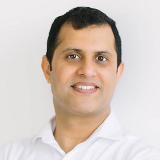 Nimish Gera, PhD, Vice President, Biologics, Mythic Therapeutics
Nimish Gera, PhD, Vice President, Biologics, Mythic Therapeutics
* 活動內容有可能不事先告知作更動及調整。
2024年 方案
View By:













